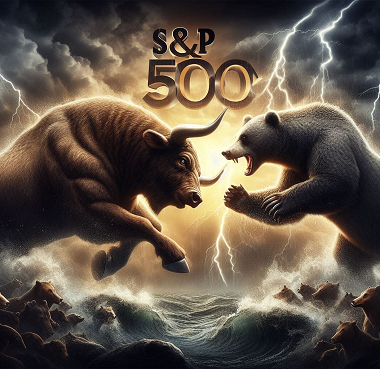Remember 2008? The housing market implosion that sent shockwaves through the global economy? Many investors watched in horror as the value of their homes plummeted. But a select few, like Michael Burry, saw the storm brewing and made a fortune by betting against the market.
Today, whispers of another potential stock market crash are swirling, and Michael Burry’s name is back in the headlines. Is this just a case of history repeating itself, or are there fundamental differences at play? Let’s delve into Burry’s past success, explore the current market conditions, and unpack the possibility of another major downturn.
The “Big Short”: A Mastermind Takes on the Housing Bubble
Michael Burry wasn’t your typical Wall Street hotshot. A quiet and reclusive investor, he meticulously studied complex financial instruments and identified vulnerabilities in the housing market. Burry saw a ticking time bomb in the proliferation of subprime mortgages – loans offered to borrowers with shaky credit histories. These risky loans were then bundled together and sold as mortgage-backed securities, creating a seemingly stable financial product.
However, Burry recognized the inherent instability within these securities. He believed that many borrowers wouldn’t be able to repay their loans, leading to defaults and a domino effect that would cripple the housing market. Armed with this conviction, Burry made a bold move: he shorted the housing market.
Here’s how it worked: Burry essentially borrowed shares of mortgage-backed securities, betting their value would decline. When the housing bubble inevitably burst, and those securities plummeted in value, Burry repurchased the borrowed shares at a much lower price, returning them to their original owners and pocketing the massive difference. His audacious strategy, chronicled in the book and film “The Big Short,” earned him billions of dollars and cemented his reputation as a financial maverick.
The Stock Market Today: Echoes of 2008?
Fast forward to 2024. The stock market has enjoyed a long bull run, with many indexes reaching record highs. However, some investors, including Michael Burry, are expressing concerns about a potential stock market crash. So, what are the parallels between the 2008 housing crisis and the current market climate?
- Valuation Concerns: Some argue that certain sectors of the stock market are overvalued, similar to the inflated housing market of the pre-2008 era. Rapidly rising stock prices, particularly in technology companies, might not be supported by long-term fundamentals.
- Rising Interest Rates: The Federal Reserve has begun raising interest rates to combat inflation. This could make borrowing money more expensive, potentially impacting corporate earnings and investor confidence.
- Geopolitical Tensions: Global events like the war in Ukraine and ongoing trade disputes create uncertainty in the market, which can lead to investor anxiety and market volatility.
However, there are also key differences between the current market and the pre-2008 bubble:
- Stronger Financial Regulations: Following the 2008 crisis, stricter financial regulations were implemented to prevent a similar situation. These regulations may help mitigate the risk of a widespread collapse.
- More Scrutiny on Subprime Lending: After the housing bubble burst, lending standards became tighter, making it harder for unqualified borrowers to access risky loans like subprime mortgages. This reduces the possibility of a similar crisis in the housing market impacting the broader economy.
The Big Short 2.0: Will Burry Be Right Again?
Michael Burry has recently placed large bets against the S&P 500 and the Nasdaq 100, suggesting he believes a stock market crash is on the horizon. But will history truly repeat itself?
The truth is, nobody can predict the future with certainty. However, by understanding the factors that contributed to the 2008 crisis and the differences in the current market, investors can make informed decisions.
Navigating Market Volatility: Tips for Investors
Whether you’re a seasoned investor or just starting out, here are some insights to help you navigate market volatility:
- Diversification is Key: Don’t put all your eggs in one basket. Spread your investments across different asset classes to mitigate risk.
- Focus on Long-Term Goals: Don’t let short-term market fluctuations dictate your investment strategy. Keep your long-term financial goals in mind and stick to a disciplined approach.
- Seek Professional Advice: If you’re unsure about how to navigate the market, consider consulting a qualified financial advisor.
Beyond the Headlines: A Look at the Bigger Picture
While Michael Burry’s bets against the market grab headlines and spark fear, it’s important to look beyond the sensationalism. Here are some additional factors to consider:
- The Strength of the Underlying Economy: A healthy economy provides a solid foundation for the stock market. While there are concerns about inflation, the overall economic outlook in the US remains relatively stable compared to the pre-2008 crisis.
- The Role of Technology: Technological advancements have fundamentally changed the way businesses operate and generate revenue. While some sectors might be overvalued, technology remains a powerful driver of economic growth, impacting the stock market in positive ways.
- Investor Psychology: The market is heavily influenced by investor sentiment. Panic selling can exacerbate a downturn, while a more measured approach can help avoid overreaction.
The Future Unwritten: What Does it Mean for You?
So, should you panic and pull all your money out of the stock market? Probably not. Here are some strategies based on your investment horizon:
- Short-Term Investors: If you need your money within the next few years, consider reducing your exposure to volatile assets like stocks and focusing on more stable options like bonds or cash equivalents.
- Long-Term Investors: If your investment horizon is longer, say 10 years or more, you can weather market ups and downs with greater ease. Focus on building a diversified portfolio and stay invested for the long term.
The Final Word: Knowledge is Your Best Investment
Staying informed about the market, understanding the potential risks and rewards, and diversifying your investments are all part of building financial resilience. While Michael Burry’s predictions might generate headlines, remember, the future is never certain. By being a responsible investor and making informed decisions, you can navigate market fluctuations and steer your financial course towards success.





